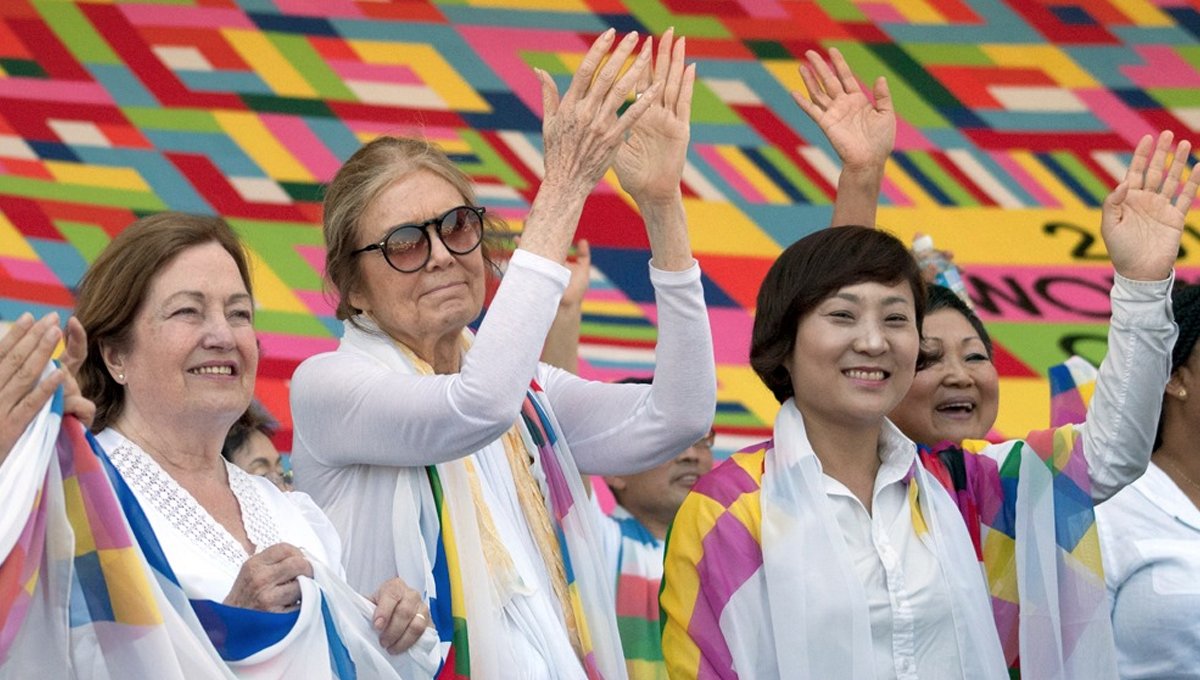Crossings- Daring Walk Across the DMZ
Fear. Anger. Judgement. These are the sentiments I usually hear from Americans and South Koreans when I bring up the subject of North Korea. Negative sentiments towards both the country and its communist regime run deep within our society. Along with the testing of nuclear missiles, a strong stigma is associated with anything having to do with North Korea.
But the fact is that few Americans even know that much about North Korea. In the words of Christine Ahn, Founder of Women Cross DMZ, “Most Americans assume that hostile relations between the United States and North Korea began when North Korea started developing nuclear weapons. In actuality, the conflict dates back to the end of World War II, when Korea was liberated from Japanese colonial rule, only to be divided by the United States in one of the first acts of the Cold War.”
Following liberation from Japanese colonization, the U.S. and U.S.S.R. divided the Korean Peninsula at the end of World War II. This division was decided at the Yalta Conference in February 1945, six months before liberation, without any consultation from the Korean people. As the Korean people celebrated what they thought would be their freedom, they soon realized that their country would continue to be controlled by the greater powers and nations to be.
Koreans themselves yearned to be one nation. Korean history is close to 5,000 years-long dating back to 2,333 BCE. 35 years of cruel Japanese rule spurred on a strong nationalist movement to unite the country. Political division led directly to military conflict as both sides desired unification, resulting in the Korean War breaking out on June 25, 1950.
Three years of bloody conflict left approximately 3 million dead, most of whom were civilians. The death toll in North Korea totaled more than in the South. According to percentage per capita, North Korea lost about 16% of its population, whereas South Korea lost only approximately 5% of their population. Therefore, almost 2 out of every 10 people vanished in the North, leaving the country traumatized for years.
It has been 70 years since the armistice signed at Panmunjom ceased fire, but the war has never ended. Although the agreement originally intended for a peace treaty to follow, no such treaty has ensued leaving the Korean Peninsula suspended in a conflict of war.
Women Cross DMZ crossed from North to South Korea
To raise awareness of this conflict, the recent documentary “Crossings” featured the 2015 journey of women peacemakers from all around the world walking across the DMZ. (Airing for a limited time!) These women met great opposition from both the U.S. and South Korea. Leymah Gbowee, a Nobel Laureate from Liberia, urged the peacemakers on stating, “Not everyone will applaud us. We are bound to face resistance…Anything that comes easy is not worth fighting for.”
These women were not only convicted that a peace treaty was needed to replace the armistice but also that women needed to be involved at all levels of the peace-making process. Co-Founder of Code Pink, Medea Benjamin, stated that, “We really feel an obligation as women to stop wars.” Despite the risks and dangers, a group of 30 female activists from all around the world gathered together to do the impossible- walk across the most militarized zone in the whole world.
Peace Activists with Women Cross DMZ
Along the way they met opposition. At first, North Korea backpedaled. Then once the North was back on board, the group was assaulted by human rights groups. They were accused of being North Korean sympathizers and ignoring blatant human rights violations.
Regardless of the insults the world threw at them, Women Cross DMZ completed their journey. They risked deportation, false publicity, and even plausible military conflict, but support was greater. Women on both sides of the border joined them in walking in solidarity for peace.
When President Trump and Chairman Kim Jong Un met June 2018 in Singapore, it appeared as if their peace efforts were bearing fruit. President Trump promised to work towards a peace treaty with North Korea. But the following Hanoi Summit failed to follow through. The U.S. accused North Korea of demanding a lift of all sanctions. North Korea denied such allegations. They only called for a lift of sanctions that directly impacted the common people, North Korea rebutted. This sudden turn of events left the women stunned. Momentous strides towards peace shattered before their very eyes.
Since this devastating blow, Women Cross DMZ has not stopped advocating for peace on the Korean Peninsula. The most important aspect of their work is breaking down walls in peoples’ minds, that is changing the current hostile policy of isolation to one for peace and diplomatic engagement. The film concludes with the introduction of Peace on the Korean Peninsula Act (H.R. 1369). Peace efforts are proving worthwhile as support for this bill gains momentum in the House with 33 co-sponsors. Peace must be achieved. As Christine Ahn declared, “Let the Korean people see peace on the Korea Peninsula…We shouldn’t allow peace and the Korean people to be held hostage.”

